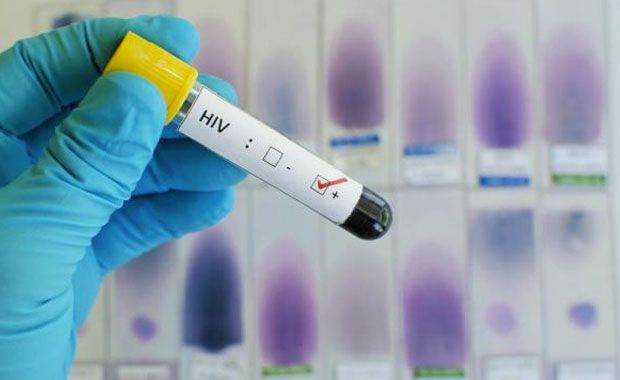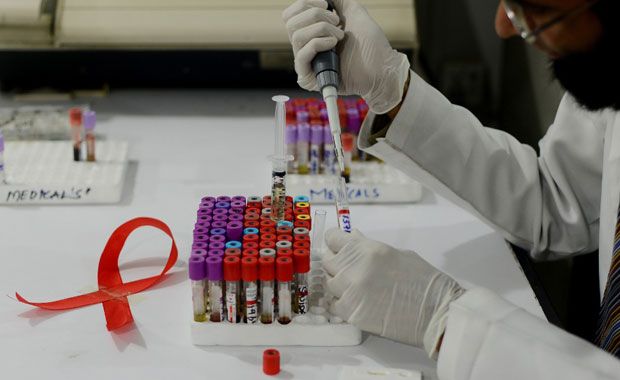Advertisement
Recent HIV Breakthroughs Bring Us Closer Than Ever to a Vaccine
| By Nick Nunez
Advertisement - Continue reading below


While the world of disease research usually provides scientists with more than their fair share of grueling work and frustrating results, these past few weeks have given HIV researchers some incredible reasons to get excited.
According to NBC News, an experimental HIV vaccine that has already yielded promising results has been approved for a large-scale clinical trial in South Africa this year. Meanwhile, a team of scientists at the National Institutes of Health (NIH) has discovered a powerful antibody in the blood of an HIV patient that can unveil clues on how to stop the virus that causes AIDS. Though researchers and doctors are practicing cautious optimism, these breakthroughs have the possibility to bring us closer than ever to something what we once thought was nothing more than science fiction: a vaccine for HIV.
The NIH’s exciting discovery came from identifying an antibody that the doctors named VRC34.01 in the blood of an HIV patient. Doctors treating the patient found that the antibody binds to specific molecules on the HIV virus. Once bound, the scientists were able to crystalize the antibody onto the virus, preventing the virus from infecting any other cells. According to Science Bulletin, the study was led by scientists at the Vaccine Research Center (VRC) of the National Institute of Allergy and Infectious Diseases, a part of NIH.

While the NIH’s breakthrough is encouraging, it will take years before this discovery can be made into a vaccine and made into a clinical trial. Thankfully, though, the National Institute of Allergy and Infectious Diseases has already approved a large-scale clinical trial for a different HIV vaccine. The trial is set to begin in November. The trial will take place in South Africa, the country with the largest HIV epidemic in the world, with over 6.3 million people living with the disease according to a UNAIDS Gap Report in 2014.
“For the first time in seven years, the scientific community is embarking on a large-scale clinical trial of [the] HIV vaccine, the product of years of study and experimentation,” said Dr. Anthony Fauci, director of the National Institute of Allergy and Infectious Diseases.
The vaccine is an improved version of the RV144 vaccine that was previously tested. While Dr. Fauci has said that new HIV infections have fallen by 35% globally since 2000, the disease still is ravaging communities, especially in Africa and other parts of the developing world. Researchers are confident that this improved version of the vaccine will yield promising results that will eventually lead to the eradication of the disease.
HIV/AIDS still kills at least 1.2 million people globally each year. Scientists are optimistic that a real cure can be developed by 2030.
Advertisement - Continue reading below
Share
On Facebook
